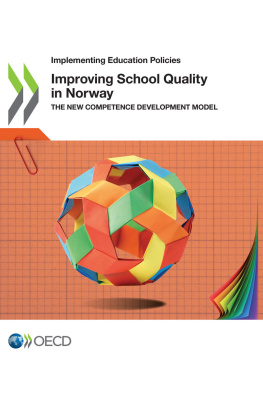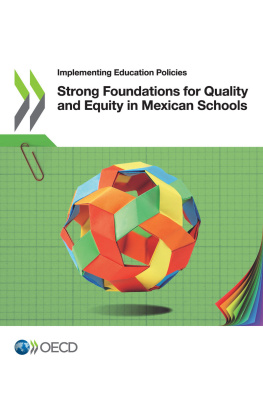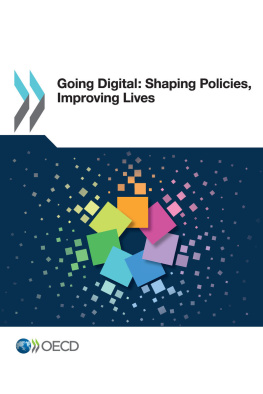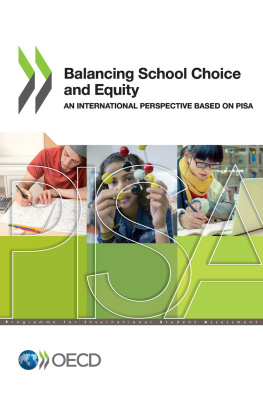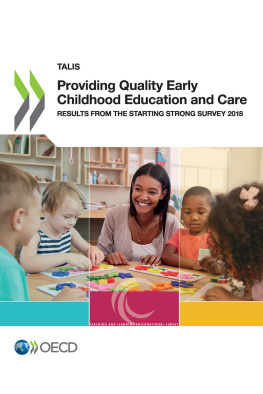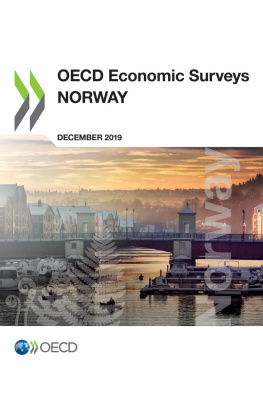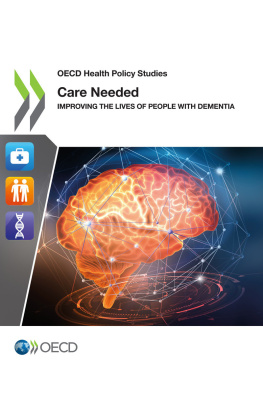OECD - Improving School Quality in Norway
Here you can read online OECD - Improving School Quality in Norway full text of the book (entire story) in english for free. Download pdf and epub, get meaning, cover and reviews about this ebook. year: 2019, publisher: OECD Publishing, genre: Politics. Description of the work, (preface) as well as reviews are available. Best literature library LitArk.com created for fans of good reading and offers a wide selection of genres:
Romance novel
Science fiction
Adventure
Detective
Science
History
Home and family
Prose
Art
Politics
Computer
Non-fiction
Religion
Business
Children
Humor
Choose a favorite category and find really read worthwhile books. Enjoy immersion in the world of imagination, feel the emotions of the characters or learn something new for yourself, make an fascinating discovery.
Improving School Quality in Norway: summary, description and annotation
We offer to read an annotation, description, summary or preface (depends on what the author of the book "Improving School Quality in Norway" wrote himself). If you haven't found the necessary information about the book — write in the comments, we will try to find it.
OECD: author's other books
Who wrote Improving School Quality in Norway? Find out the surname, the name of the author of the book and a list of all author's works by series.
Improving School Quality in Norway — read online for free the complete book (whole text) full work
Below is the text of the book, divided by pages. System saving the place of the last page read, allows you to conveniently read the book "Improving School Quality in Norway" online for free, without having to search again every time where you left off. Put a bookmark, and you can go to the page where you finished reading at any time.
Font size:
Interval:
Bookmark:
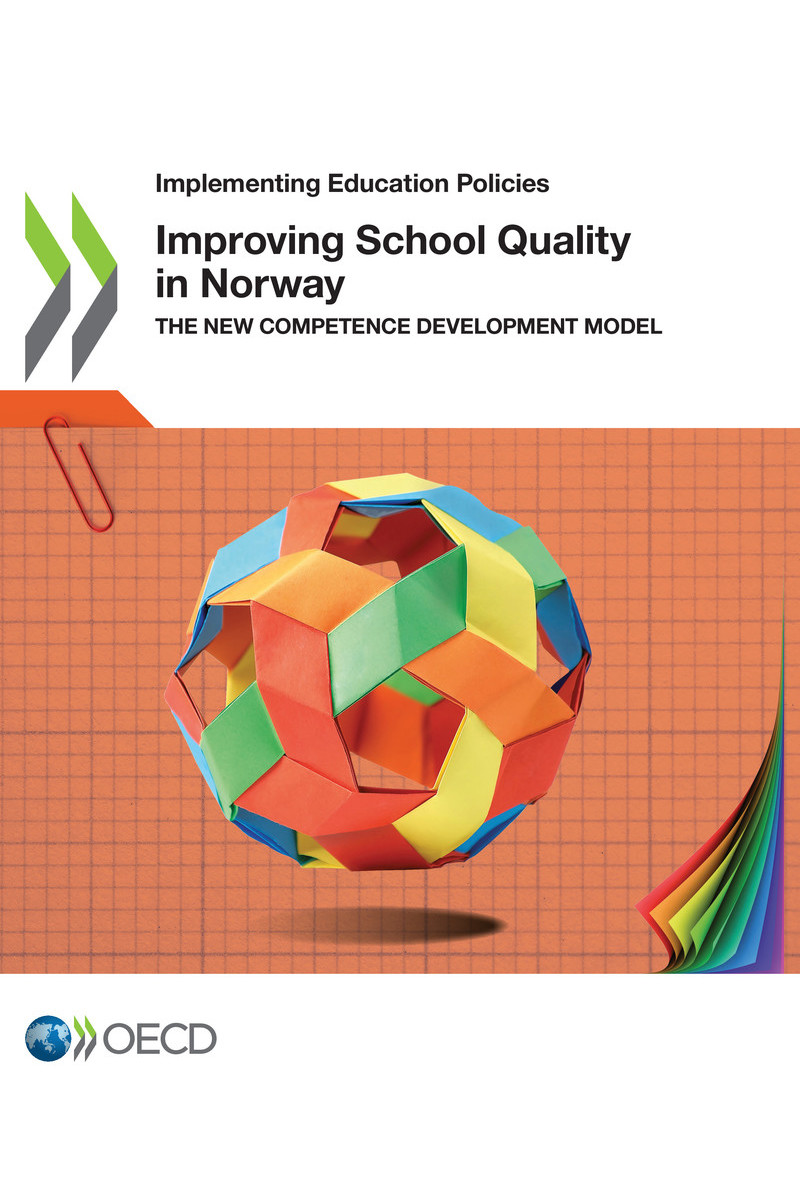
OECD (2019), Improving School Quality in Norway: The New Competence Development Model , Implementing Education Policies, OECD Publishing, Paris, https://doi.org/10.1787/179d4ded-en .
Norway is deeply committed to education, as demonstrated by its high level of public expenditure and the dynamic policy activity targeting education quality in the country. This has been translated into noteworthy successes. For example, the Programme for International Student Assessment (PISA) that gauges how well the students master key subjects in order to be prepared for real-life situations in the adult world, has shown a positive development in the average performance of Norwegian students, which is now above the OECD average in all three disciplines (science, mathematics, and reading).
Norway is set on continuing this positive development, but recognises there still are challenges and great differences between schools in municipalities and between municipalities and regions. The role of the Norwegian Directorate for Education and Training is being remodelled, with the current devolution of competences to local authorities. In particular, strategies for professional development are questioned, as they may be inadequate for local contexts and fail to engage teachers.
This is why in its White Paper n.21 Desire to learn - early intervention and quality in schools, the Government of Norway aims to provide municipalities and schools with greater freedom of action and empower them to carry out systematic school improvements at the local level. It introduces a new competence development model for schools to develop collaborative professionalism at every layer of the education system, and consists in in-service professional development.
The OECD has engaged with Norway to support the implementation of this new competence development model for schools, as part of its new strand of work centred on education policy implementation. It builds on evidence that policy reforms do not always translate into concrete actions and results in schools. This is partly due to the gap between the attention given to the policy design and the lack of support once it has to be implemented. Moreover, as education policy is taking shape in increasingly complex environments, moving from top-down structures to more horizontal interactions between many actors, the nature of policy implementation is changing with much more negotiation and co-construction with stakeholders.
As countries aim to achieve excellence, equity and efficiency in education, one of the aims for the OECD Directorate for Education and Skills is to provide implementation support to close the gap between educational aspirations and performance by providing strategic advice, and ensuring the integration of different stakeholders at different stages of the policy implementation process.
This tailored support with Norway brings together two teams from the Implementing Education Policies and Strategic Education Governance projects (Annex A). The OECD team undertook two assessment visits to Norway (June 2018 and February 2019, Annex B), and organised a stakeholder implementation seminar (October 2018, Annex C) during which Norwegian education stakeholders discussed and proposed options on how to most effectively implement this new competence development model.
This report, grounded on evidence, and highly contextualised with Norwegian education stakeholders, through visits and an implementation seminar, presents OECDs assessment and proposes suggestions for the implementation strategy of the new competence development model. Looking at strengths and weaknesses of the current implementation strategy of the new model, it offers actions to consider to foster the adoption and the development of the new model.
This report assessing the implementation strategy of the new competence development model for schools in Norway is informed by international experience and best practices from OECD countries. The assessment process involved three country visits, three reference group meetings, a stakeholder seminar, and has engaged and benefited from contributions from a large number of Norwegian education stakeholders, including students, teachers, school leaders, parents, representatives from municipalities, from teacher unions, school leader representatives, universities, from the Directorate for Education and Training, from the Ministry of Education, and other institutions. The OECD review team authors of the report are grateful for their time and contributions.
The review team is indebted to the Norwegian Directorate for Education and Training, partner in this implementation support, under the leadership of the Ministry of Education and Research. Sidsel Sparre, Director of the Department of Kindergarten and School Development, Anne-Berit Kavli, Project Coordinator, Beate Tislevoll, and Vivi Bjelke, senior advisors at the Directorate for Education and Training have provided invaluable contributions and support throughout the project. We are also grateful to Siv Hilde Lindstrm, Education Counsellor at the Norwegian Permanent Delegation at the OECD, and Hvard Lunnan former national coordinator and now senior advisor at the Ministry of Education and Research, who provided constructive feedback.
This report was prepared as part of OECDs Implementing Policies: Supporting Effective Change in Education programme undertaken by the Policy Advice and Implementation division within the Directorate for Education and Skills. Yet, it brings together authors from both the Policy Advice and Implementation and from the Innovation and Measuring Progress divisions. More concretely, the OECD team is composed of Beatriz Pont, who leads the project and edited the report, Pierre Goudard, who co-ordinated the report and organised the publication process (author of Chapters 1, 2, and 5 with Beatriz), Marinus Rouw (author of Chapter 3), and Claire Shewbridge (author of Chapter 4).
Font size:
Interval:
Bookmark:
Similar books «Improving School Quality in Norway»
Look at similar books to Improving School Quality in Norway. We have selected literature similar in name and meaning in the hope of providing readers with more options to find new, interesting, not yet read works.
Discussion, reviews of the book Improving School Quality in Norway and just readers' own opinions. Leave your comments, write what you think about the work, its meaning or the main characters. Specify what exactly you liked and what you didn't like, and why you think so.

